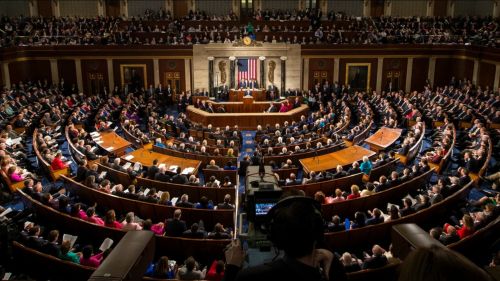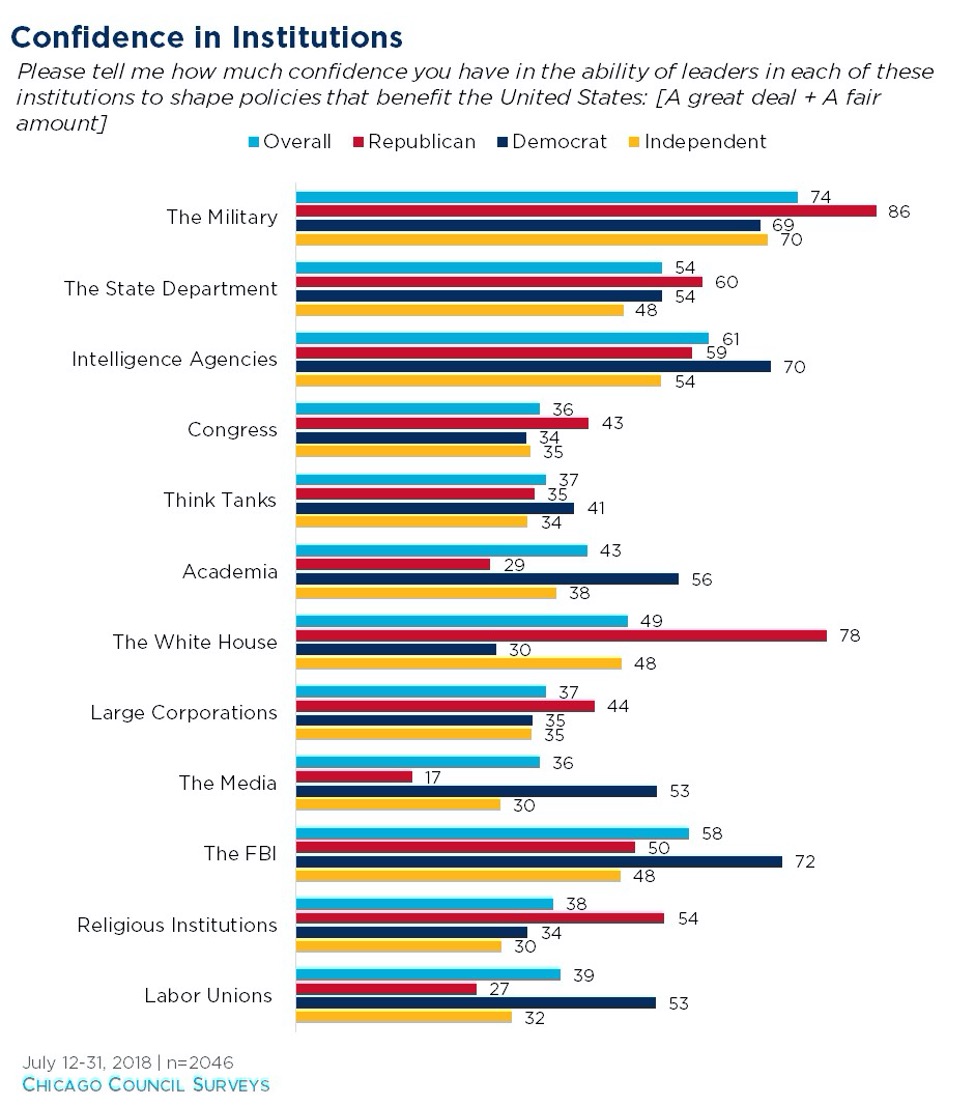Confidence in Congress Low

Results from the 2018 Chicago Council Survey indicate that trust in American political institutions is extremely low—especially so for congress.
The mid-term elections have come and gone, and with the House soon to be held by Democrats Congress is expected to attempt to reassert its influence over US foreign policy. But in this polarizing time in the United States, there is at least one thing that seems to bring Americans of all political stripes together—a lack of confidence in the leaders of Congress, think tanks, and large corporations to shape policies that benefit the United States. Among twelve institutions included in the 2018 Chicago Council Survey—conducted well before the mid-terms—only these institutions receive minority confidence from Americans across the political spectrum.
Congress inspires the least amount of confidence from the American public. Thirty-six percent overall—43 percent among Republicans and 34 percent among Democrats—cite either a great deal or a fair amount of confidence in Congressional leaders. Those numbers are only slightly better for think tanks where 37 percent cite some level of confidence. Large corporations are similar.

Republicans and Democrats also come together in their confidence in the military, the State Department, intelligence agencies, and the FBI. Each of these has 50 percent or greater levels of confidence among the American public overall, with the military the institution that receives the highest marks.
There are also clear areas of divide between the two parties. Of no surprise is that the White House is the single most divisive institution included in the survey. While 49 percent of the public state's confidence, there is a 48 percentage point gap between Republicans (78%) and Democrats (30%). This is followed by a 36 percentage point gap between Republicans (17%) and Democrats (53%) on confidence in the media.
There was little change from when this same question was asked in 2017, with one exception. Confidence in intelligence agencies fell 10 percentage points, from 71 percent in 2017 to 61 percent in 2018. Much of that decline was among Republicans, declining from 76 percent to 59 percent. Democrats went from 75 percent to 70 percent.
It is tempting to attribute these declines to the rhetoric emanating from the White House, but it may also be premature. Confidence in all institutions was down slightly from 2017 (except the White House, which was one percentage point higher in 2018 than 2017).

